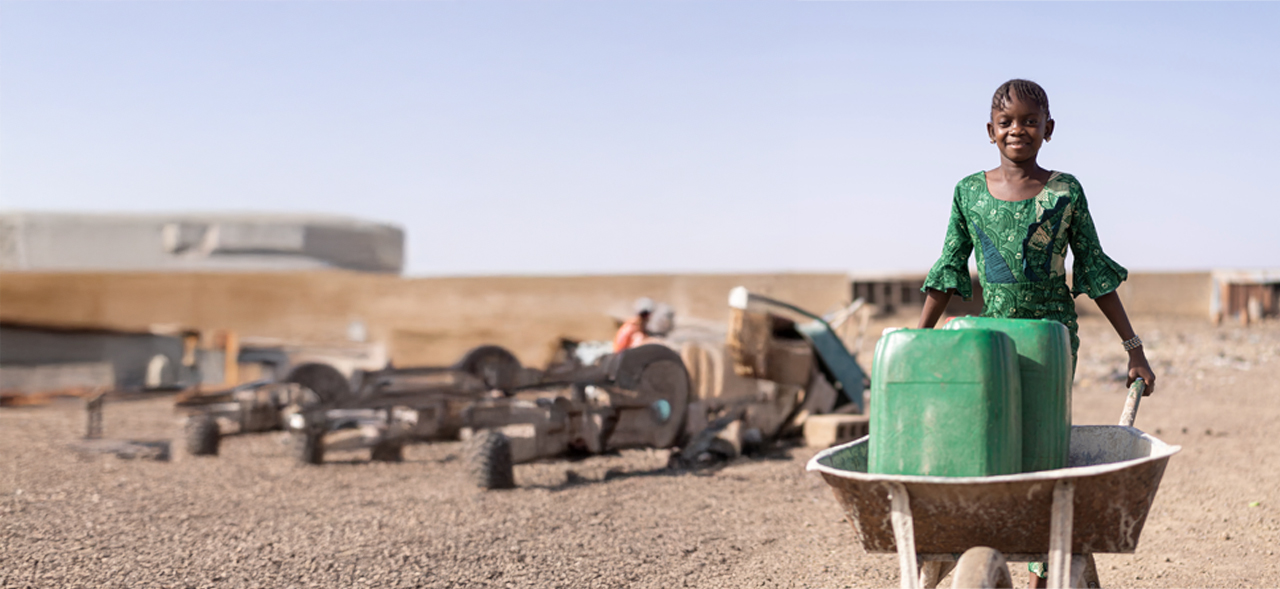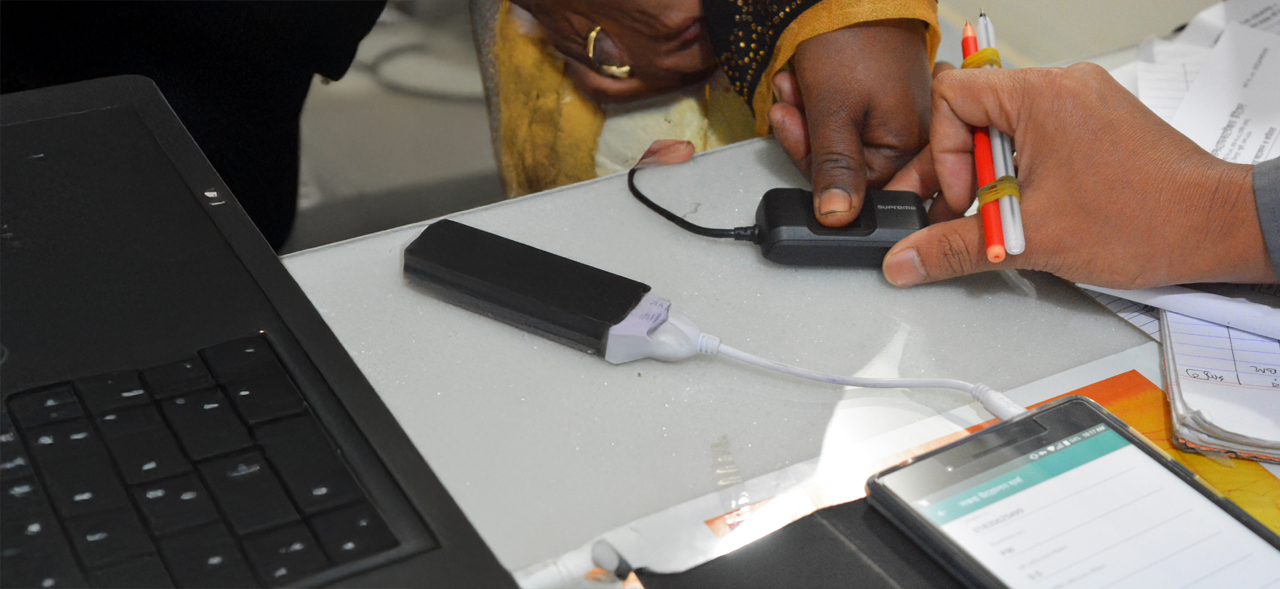
As climate change continues to intensify across Tanzania, growing numbers of people are displaced from their homes. These internally displaced persons (IDPs), often uprooted by floods, droughts, or other climate-related events, face heightened economic vulnerability and limited access to formal financial services. In response, the Bank of Tanzania recognized the urgent need to include displaced populations within the country’s financial inclusion agenda. To support this goal, a comprehensive diagnostic study was initiated to better understand the financial needs and barriers faced by climate-induced IDPs and to develop a strategic roadmap for their inclusion.
MSC led this diagnostic study. Drawing from both demand and supply side perspectives, we assessed the financial behaviors, needs, and constraints of climate-displaced populations, while also examining the capacity and readiness of financial institutions to serve them. The study explored regulatory gaps, institutional coordination challenges, and opportunities to build more inclusive financial products and delivery channels. The generated insights informed the development of a practical and forward-looking roadmap to support the integration of IDPs into the National Financial Inclusion Framework (NFIF) and broader financial sector policies.
The project marked an important step in ensuring that Tanzania’s financial inclusion strategy is responsive to the evolving risks of climate change and displacement. By equipping policymakers with a nuanced understanding of the financial exclusion experienced by IDPs, the study has catalyzed greater alignment among financial sector stakeholders and strengthened the foundation for inclusive, resilient policy action. The roadmap now serves as a guide for incorporating displaced populations into national financial systems and enhancing their economic participation and protection.
This project was commissioned by the Alliance for Financial Inclusion (AFI).

In the face of evolving financial technologies and increasing demand for inclusive digital financial services (DFS), regulators in Pacific Island countries and Seychelles recognized the need for a collaborative approach to strengthen their supervisory capabilities. The Alliance for Financial Inclusion (AFI) commissioned a study to explore the development of a shared SupTech and RegTech solution that could enhance regulatory effectiveness, promote innovation, and accelerate financial inclusion across the region.
MSC led the study to assess the feasibility and design of a unified digital supervisory tool for Pacific regulators. Adopting a collaborative, stakeholder-driven methodology, the project unfolded in six distinct phases. These included comprehensive landscape assessments, in-depth stakeholder consultations, technical feasibility analysis, and the cocreation of a five-year implementation roadmap. Throughout the process, MSC worked closely with central banks, regulators, and development partners to ensure the proposed solution addressed regional needs while remaining scalable and cost-effective.
The study culminated in a high-level regional workshop that brought together key regulatory actors and development agencies to validate the findings and align on next steps. This convergence laid the foundation for a resilient, future-ready regulatory ecosystem tailored to the Pacific context. The roadmap and recommendations developed by MSC now serve as a strategic guide to help regulators harness technology, improve supervisory oversight, and create a more inclusive financial environment across the region.
This project was commissioned by the Alliance for Financial Inclusion (AFI).

As part of a broader agenda to enhance financial inclusion and strengthen regulatory compliance, Bangladesh has accelerated the adoption of electronic Know Your Customer (e-KYC) processes across its financial sector. The Bangladesh Financial Intelligence Unit (BFIU), in collaboration with the International Finance Corporation (IFC), set out to develop a strong business case to support the nationwide rollout of e-KYC. The goal was to provide evidence on the operational benefits of digitized onboarding systems and encourage financial institutions to move away from manual processes.
MSC was engaged to conduct a comprehensive baseline study of customer onboarding practices across various financial institutions, which includes banks, mobile financial service (MFS) providers, insurers, and capital market entities. The study measured customer acquisition costs, evaluated onboarding durations, and assessed the operational efficiencies enabled by digital processes. Through this assessment, MSC generated clear, data-driven insights to guide financial institutions in transitioning from traditional to digital KYC systems. The findings also served as a strategic input to help stakeholders understand the economic and procedural advantages of e-KYC adoption.
The study played a key role in reinforcing the case for scalable e-KYC implementation across Bangladesh’s financial ecosystem. By quantifying cost savings, streamlining customer acquisition, and identifying efficiency gains, MSC’s work empowered financial institutions with the knowledge needed to modernize their onboarding systems. It also supported regulators in shaping a cohesive vision for secure, efficient, and inclusive customer verification practices. The findings are expected to contribute significantly to expanding access to formal financial services across the country.
This project was commissioned by the United Nations Development Programme (UNDP).

To accelerate inclusive economic growth and strengthen the financial ecosystem, Ethiopia launched its revised National Financial Inclusion Strategy (NFIS-II) for the period 2021–2025. With an ambitious goal of increasing formal financial account ownership from 45% in 2020 to 70% by 2025, the strategy emphasizes expanding access, usage, and the quality of financial services across the country. Given Ethiopia’s geographic and socioeconomic diversity, a strong regional implementation approach was essential to ensure that the strategy translates into inclusive outcomes on the ground.
MSC was engaged by FSD Ethiopia to provide technical assistance to the National Bank of Ethiopia (NBE) in operationalizing the revised strategy. MSC supported the development of a regional implementation framework that aligns national NFIS-II goals with local contexts and capabilities. This work involved the identification of regional disparities, tailoring interventions to local realities, and strengthening coordination mechanisms to enable more effective delivery of financial inclusion programs. MSC’s support was critical in translating high-level national targets into actionable plans at the regional level.
With this contribution, the National Bank of Ethiopia is now better equipped to drive localized implementation of NFIS-II. The strategy is underpinned by initiatives that promote data-driven decision-making, strengthen financial literacy, and improve consumer protection. These efforts are helping to scale financial inclusion across the country, particularly among underserved communities. MSC’s work has played a key role to ensure that Ethiopia’s financial inclusion strategy is not only ambitious but also achievable, measurable, and responsive to the needs of all its people.
This project was commissioned by FSD Ethiopia.

Vietnam’s fast-growing microfinance sector needed a modern policy environment to scale responsibly and deepen outreach to low-income clients. The State Bank of Vietnam (SBV) asked MSC to chart that path.
MSC benchmarked existing laws and prudential norms against international good practice, and mapped the landscape of semi-formal and licensed MFIs. We also undertook field research to gauge the reach, cost, and quality of services for the underserved segments. We conducted capacity-building workshops in parallel to equip the SBV staff, at headquarters and regional branches, with risk-based supervision and consumer-protection tools. We developed a cost–benefit analysis of subsidized-credit programs to highlight efficiency gaps and inform evidence-based reforms.
These insights converged in a phased roadmap that clarifies licensing tiers, strengthens capital and governance standards, and embeds market-conduct supervision. The roadmap aligns oversight with market realities and positions Vietnam’s microfinance industry to expand safely, attract sustainable funding, and serve more people at the base of the pyramid.
The State Bank of Vietnam commissioned the project.

The Government of Bangladesh sought to realize its Smart Bangladesh Vision 2041, laid out an ambitious national agenda to transform the country into a digitally empowered, cashless, and high-income economy. Central to this vision is the transformation of the financial sector to enable inclusive growth, digital innovation, and economic resilience. As part of this effort, Bangladesh Bank intended to build a future-ready financial ecosystem that could support the country’s broader digital development goals.
MSC partnered with Bangladesh Bank to support the strategic planning process that underpins this national vision. Through a comprehensive scoping study, MSC codeveloped a digital transformation roadmap for the financial sector. The study identified key areas where innovation and technology could accelerate progress and proposed strategic actions to strengthen digital infrastructure and regulatory frameworks. MSC also helped shape an inclusive, tech-enabled regulatory ecosystem by integrating perspectives from a wide range of stakeholders. As part of this work, MSC designed a suite of scalable pilot projects to fast-track the sector’s transition toward a smart, cashless economy by 2031.
This engagement laid the foundation for a digitally inclusive financial ecosystem aligned with Bangladesh’s long-term development goals. The roadmap and pilot initiatives developed through this collaboration promote innovation, interoperability, and inclusive growth across the financial sector. By strengthening regulatory readiness and market infrastructure, the study has enabled the financial system to become more agile, resilient, and future-focused, which has helped accelerate the country’s journey toward a Smart Bangladesh.
This project was commissioned by the Gates Foundation.





